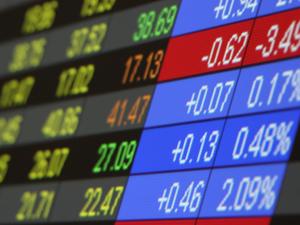You are probably wondering what the heck I am talking about….a carbon bubble? What’s that?
In the 1970s we were “conditioned” to believe that the world would run out of fossil fuel resources early in the 21st century. Remember the term “peak oil?” Much policy and financial forecasting by government and business was predicated on the peak oil forecasts. Turned out the forecast was wrong.
Carbon Tracker Initiative calls the current state of fossil fuel resources a carbon bubble. It concludes this by looking at reported carbon assets in reserve, our current consumption, and scientific forecasts on what we can safely burn without inducing dramatic climate impacts. The carbon bubble report doesn’t come from the environmental lobby. Carbon Tracker is very much focused on the business of carbon assets and those who invest in fossil fuels. It looks at reserve estimates from companies in the energy extraction business and poses the question:
Are the world’s financial markets carrying a carbon bubble?
In its 2011 report, entitled Unburnable Carbon, it states there are currently 745 gigatons of carbon reserves reported by the 100 biggest coal and 100 biggest petroleum companies in the world, a third more than the 565 gigatons deemed by scientists as safe to burn before 2050 without causing significant climate disruption. And these are only the stated reserves of companies listed on world exchanges. When unlisted companies and government holdings are included, the totals amount to 2,800 gigatons in recoverable carbon assets. In other words, there is a net surplus of carbon assets amounting to 2,235 gigatons that cannot be burned. Hence a carbon bubble.
Carbon Tracker believes that investors in the energy sector, therefore, are at risk because carbon assets are overvalued and cannot be burned for the foreseeable future without grave consequences. The report equates the current state of carbon assets as equivalent to the dot.com and telecommunications bubble that burst in 2000 costing institutional investors hundreds of billions of dollars in losses. The report further states that current financial institutions are currently not designed to transition to a low-carbon economy. So not only are we at risk financially because of the energy asset glut, but also at risk because if we choose to extract and burn these assets to make good on what is being reported to investors we will inexorably compromise the Earth’s climate.
A summary of the report’s conclusions states:
- Potsdam Institute for Climate Impact Research calculates that to reduce the chance of exceeding 2°C warming to 20%, the global carbon budget for 2000-2050 is 886 gigatons. Minus emissions from the first decade of this century, this leaves a budget of 565 gigatons for the remaining 40 years to 2050.
- Total known carbon fossil fuel reserves equals 2,795 gigatons, 65% from coal, 22% from oil and 13% from gas.
- Governments and global markets, therefore, are currently treating as assets, reserves equivalent to 5 times the carbon budget for the next 40 years. The investment consequences of using only 20% of these reserves remains unaddressed.
- Fossil fuel reserves held by the top 100 listed coal companies and the top 100 listed oil and gas companies represent the 745 gigatons referred to earlier in this posting exceeding the carbon budget of 565 gigatons by 180 gigatons.
- If we were to use up just those listed reserves over the next 40 years we would exceed the 2 degrees Celsius (3.6 Fahrenheit) target that scientists collectively have determined as being the upper limit for manageable climate change.
- Thus investors need to understand that only 20% of the total reserves held by energy companies can actually be exploited to stay below the temperature threshold target which means companies are holding nonburnable carbon assets representing 80% of declared reserves.
- The top 100 coal and 100 oil and gas companies had a combined value of $7.42 trillion as of February 2011 with the largest greenhouse gas potential in reserves on stock exchanges in Russia, United States, United Kingdom and Canada. The exchanges of London, Sao Paulo, Moscow, Australia and Toronto hold 20-30% of their market capitalization in fossil fuel stocks.
When a report sounds the alarm to institutional investors the environmental lobby gains a new advocate on the climate file. And Carbon Tracker isn’t alone in raising the level of awareness. The International Energy Agency in its World Energy Outlook for 2012 has drawn the same conclusions.


















All of which suggests the world’s richest factions will continue to feed their reserves of carbon-based fuels into global markets at rates calculated to optimize their profits. That means growing the global economy increases demand for carbon-based fuels, which increases their profits. The richest factions will also try to use government coercion over markets, such as “cap and trade” and “production quotas,” to support higher prices in glutted markets. But regardless of the specifics, the powerful interests that hold sway over Earth’s most exploitable carbon fuel reserves are, and will be, setting consumption policies, not the idealistic greens. Big oil and big coal, why not just say “Big Carbon?,” will not lower profits to achieve lower global temperatures. The “bubble” is not so much in the huge physical reserves as it is in the constantly growing huge population of hominids, which fully intends to burn its share of carbon fuel.
Significant independent political forces that can withstand the corrupting influences of “big carbon” do not exist within major nations. Swarms of non-rich greenhead idealists will fly across the world in turbojet powered airliners to attend their “global climate change” protest rallies, and then ride in comfortable fuel-hog SUVs to the marshaling sites. The only change in global civilization that can materially reduce global carbon consumption is population reduction.
Short of compelling people to stop reproducing through some kind of incentive (remember these will be largely those living in the Developing World) I don’t think we can do much to stop human population growth until mid-century when we hope that the rapid urbanization does what it has done in the Developed World, acted as an agent of birth control. It seems crowding plus economic opportunity leads to reduced birthrates.
((I don’t think we can do much to stop human population growth until mid-century when we hope that the rapid urbanization does what it has done in the Developed World, acted as an agent of birth control. It seems crowding plus economic opportunity leads to reduced birthrates.))
Then it seems we will probably be facing the Arctic methane hydrate breakdown, and nature will indifferently cull the irresponsible hominid herd. We have no better answer to Thrasymachus than did Plato. None of Plato’s several arguments for individual civic virtue have yet prevailed. Given the chance, most men will try to enrich themselves by destroying the commons.
I hope that this younger generation acts differently than what you ascribe to be our natural state of irresponsibility.
((I hope that this younger generation acts differently than what you ascribe to be our natural state of irresponsibility.))
Realization of that hope will depend mainly on how the social transformation of electronic AI/hominid mind meld develops. But, population levels are already past several environmental tipping points. Certainly the hominid brain can support both devilish and angelic personalities, and infinite varieties of everything in between, but logic and games theory, like notions of Platonic solids, are modes of thought that have eternal existence. Some of the younger generation will surely grow to understand the timeless principles of interpersonal transactions, and fairly ask, “Why shouldn’t I realize my personal desires by dishonestly exploiting weakness and stupidity in my fellows?”
When the only game in town is rigged, a negative sum dog eat dog contest, and there are no plausible prospects of winning without cheating, the potential players have no choices except to learn to cheat, lose, or else go live in a cave. The actual problem is there aren’t enough caves to sustain much of a population of honest saints after the Arctic methane hydrates breakdown.
The onrushing global AI/hominid mind meld could in principle produce universal ethical dynamics that render cheating a failed strategy (“God” sees all, and all cheaters will be punished.). But it’s also possible humankind’s mind meld transformation will develop toward the “dark side.” I don’t see much ground for optimism that angels will manage the transformation. History teaches most hope is forlorn and most prayers go unanswered.